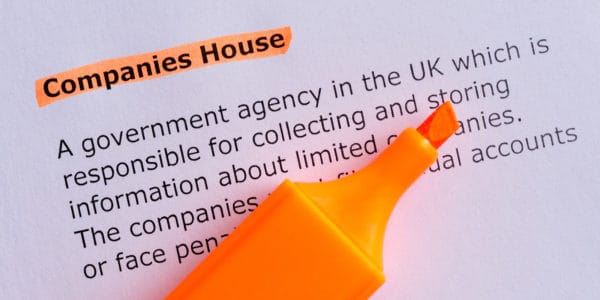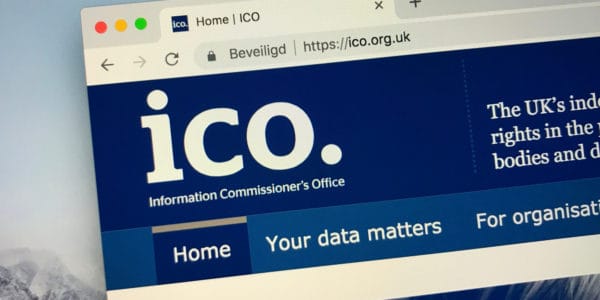When you form a limited company, you will receive a variety of codes, numbers, and references. These can cause a bit of confusion, simply because there are so many of them. Below, we simplify this aspect of company formation by explaining all of the different codes, numbers, and references you need to know about.
Key takeaways
- Obtain your company registration number from Companies House to ensure proper identification of your limited company.
- Use the Standard Industrial Classification code to accurately describe your business activities in official documents.
- Keep your Unique Taxpayer Reference handy for timely tax filings and communications with HMRC.
Company registration number (CRN)
You will receive a company registration number when your new limited company is incorporated. It will be issued by Companies House and shown on your certificate of incorporation.
If you form a company online, you will receive your certificate via email directly from Companies House or the company formation agent you used. If you set up a company using the postal application form, the certificate will be posted to your registered office address.
Your company registration number can also be found on letters sent from Companies House and in your official company record on the public register, which you can access online for free through Companies House search service.
Authentication code
Your company authentication code is a unique 6-digit alphanumeric code issued by Companies House when you register for WebFiling. You must register your company for this service and be in possession of an authentication code to be able to file information and documents online at Companies House.
SIC code
A Standard Industrial Classification code, or ‘SIC code’ for short, is a 5-digit code that tells Companies House the nature of your business (i.e., what your company actually does).
You will need to provide a SIC code on your company formation application and annual confirmation statements. Up to 4 codes can be used to describe the activities carried out by your company.
Employer PAYE reference
An employer PAYE reference will be issued by HMRC if you register your company as an employer.
Sometimes referred to as an employer reference number (ERN), you will need your employer PAYE reference to run payroll and operate PAYE.
Accounts Office reference
An Accounts Office reference will be issued by HMRC alongside your employer PAYE reference if/when you register as an employer.
You will have to provide your Accounts Office reference every time you send PAYE payments to HMRC.
VAT registration number
You will only receive a VAT registration number if you register your company for VAT. It will consist of 9 numbers prefixed by the letters ‘GB’ and will be shown on your VAT registration certificate. HMRC normally issues a certificate and VAT number within 30 working days of applying to register.
You must display your VAT number on your website, invoices, and relevant receipts. It is also required when sending a VAT Return to HMRC, paying VAT bills, and buying goods or services from other VAT-registered businesses.
Unique Taxpayer Reference (UTR)
There are two types of Unique Taxpayer References (UTRs) that you’re likely to come across – a company UTR and personal UTR. These are 10-digit codes that HMRC issues and uses to identify businesses and individuals for certain tax purposes.
HMRC will automatically send you a company Unique Taxpayer Reference when you form a company. You can also find it on notices to file a Company Tax Return and payment reminders for Corporation Tax. You will need to provide it when you register for Corporation Tax and make any tax-related filings or enquiries.
You will receive a personal Unique Taxpayer Reference when you register for Self Assessment. Most company directors and shareholders need to register to be able to report and pay tax on certain untaxed income received through their businesses (e.g., director’s loans and dividend income from shares).
Accounting reference date (ARD)
The last day of a company’s financial year is known as the ‘accounting reference date’, which is often abbreviated as ‘ARD’. This is the date up to which your annual accounts for the year should be prepared.
Companies House will tell you when your ARD is, but it is usually the last day of whatever month you incorporated your company. It will stay the same each year unless you specifically request to change your company’s year end.
You can find your accounting reference date by looking up your company record on Companies House search service. It will be shown in your company ‘Overview’ section under the ‘Accounts’ heading.
Corporation Tax payslip reference number
When you’re paying your company’s Corporation Tax bill, you will need to provide your 17-character Corporation Tax payslip reference for the accounting period that you’re paying.
Your Corporation Tax payslip reference is made up of your 10-digit company UTR, the characters ‘A001’, two digits that signify the year in which the accounting period ends, and the letter ‘A’. It will look something like 1234567890 A001 22 A.
You can find this payslip reference in your company’s HMRC online account and on any payslip that HMRC sends to your registered office address.














Join The Discussion
Comments (2)
We are two directors of a Limited Company by Guarantee, one of the directors is giving his full time to the company and manages all day to day work including fundraising and management of the activities. Can we pay him a salary or some form of nuemeration? If he is paid, what are the implications and how we can do that? Are directors are allowed to get paid for their work in a limited company by guarantee or not and if yes under what condition?
Thank you for getting in touch.
So long there is nothing to the contrary within the company’s articles of association, there is nothing preventing the payment of a salary to a director.
If your company is using the model articles of association, you will find that article 19 provides that directors can be given remuneration as they decide fit.
I’m afraid we would not be able to comment on the implications of paying a director, however, one way of carrying this out is to put in place a director’s service contract to make arrangements for payment.
We hope that helps!
Kind regards,
The QCF Team